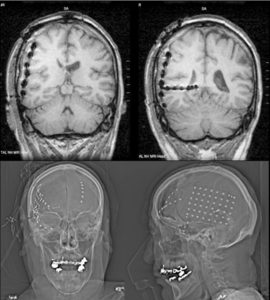Since times immemorial, diseases have bothered mankind. However, with an ever-curious mind, humankind has more often than not found a cure for most of these diseases. Similarly, there have also been diseases that still worry us.
One such disease is epilepsy. Commonly characterized by stiffness of muscles, uncontrollable jerks, and abrupt spells of unconsciousness, epilepsy is still a disease that baffles even the best of physicians. Even with the latest and the most advanced medical care advancements in place, curing or treating epilepsy has remained a challenge.
A new study, recently published in a coveted journal has cast some light and hope on this matter. If the latest AI-integrated MRI algorithms work as promised or expected, detecting and treating epilepsy would become way easier.
Epilepsy is a disease that is best treated when diagnosed at an early stage. So far, radiologists and doctors have struggled to figure out the presence of epilepsy in patients at an early stage. To date, the appearance of symptoms was necessary for detecting the disease.
With the new algorithms, researchers are hopeful to trace its onset before the symptoms surface after the disease has advanced to a mature stage.
Epilepsy and detecting its onset has always been a matter of concern for radiologists and doctors. However, a new study has revealed groundbreaking developments in the field of MRI related to the treatment of epilepsy. With this development in place, researchers are now hopeful that physicians can offer timely treatment to more patients with epilepsy going forward.

Epilepsy and Its Detection
One of the best ways to detect epilepsy has been tracing irregularities in the case of drug resistance to focal cortical dysplasia. However, it was very difficult to detect the same in time with the existing methodologies. The new MRI algorithm can detect these abnormalities associated with FCD’s drug resistance. Therefore, detecting epilepsy will be easier than before ad faster.
The validation and development of this algorithm got published in detail in the journal named Brain. The study published in the journal was conducted by specialists and experts. The team of researchers took over 1000 MRI scan reports from almost 22 different epilepsy centers. With this extensive data, the team conducted a MELD (Multicenter Epilepsy Lesion Detection) project.
Mathilde Ripart, who works with the “University College London Great Ormond Street Institute of Child Health” is the first co-author of this published article.
According to Mathilde, the team emphasized making an interpretable Artificial Intelligence algorithm, capable of helping doctors to make decisions. Mathilde further clarified that, for them, showcasing how the MLED algorithm works and predicts to the doctors, was of towering importance.
The Study
Researchers had to quantify the features of the cortical region to develop the algorithm. They used the MRI scans available to them for the purpose. The researchers also integrated expert radiologists into the process. These rads labeled the brain images into two categories – the ones with FCD and the other with no abnormalities.
After the initial preparations, the team of researchers tested it on 538 patients in total. Of these, 178 patients had negative results based on their previous imaging reports. The new algorithm found FCD in 67% of total participants.
Even for the ones who earlier had a negative result, the new algorithm revealed FCD in almost 63%cases. This process clearly demarked the necessity and superiority of the new algorithm in determining the presence r possibility of epilepsy in people.
The authors claimed that their findings could help more patients by figuring out the abnormalities that existed without any superficial trace. When detected at an early stage, many patients can avoid the hassle of delayed treatment. Prompt surgery and other treatment procedures can now help these patients get well sooner than ever.
The Expert’s View
Brain surgery is one of the most effective ways of treating and curing epilepsy. However, early detection of the disease helps in the entire process of treatment and recovery. The researchers affirmed that this development in MRI algorithms can help more children and adults with epilepsy find a faster cure.
If the detection is early, the recovery will be fast as well. Co-authors of this study, Konrad Wagstyl remarked that brain surgeries performed to cure epilepsy often result in an improved cognitive ability.
Konrad works with the department of Neurology at UCL Queen Square Institute. A remark from an expert like Konard indeed can bring new hope to the people suffering from epilepsy.
At sepStream®, we understand the importance of timely detection of diseases for prompt treatment. Therefore, we offer AI-integrated, intuitive software solutions to help you get accurate results without any delays. We keep our gamut full of advanced yet pocket-friendly solutions.
We look forward to making top-notch medical services accessible to all. Explore our exhaustive assortment of software solutions powered with cutting-edge technology to cater to your patients more efficiently.